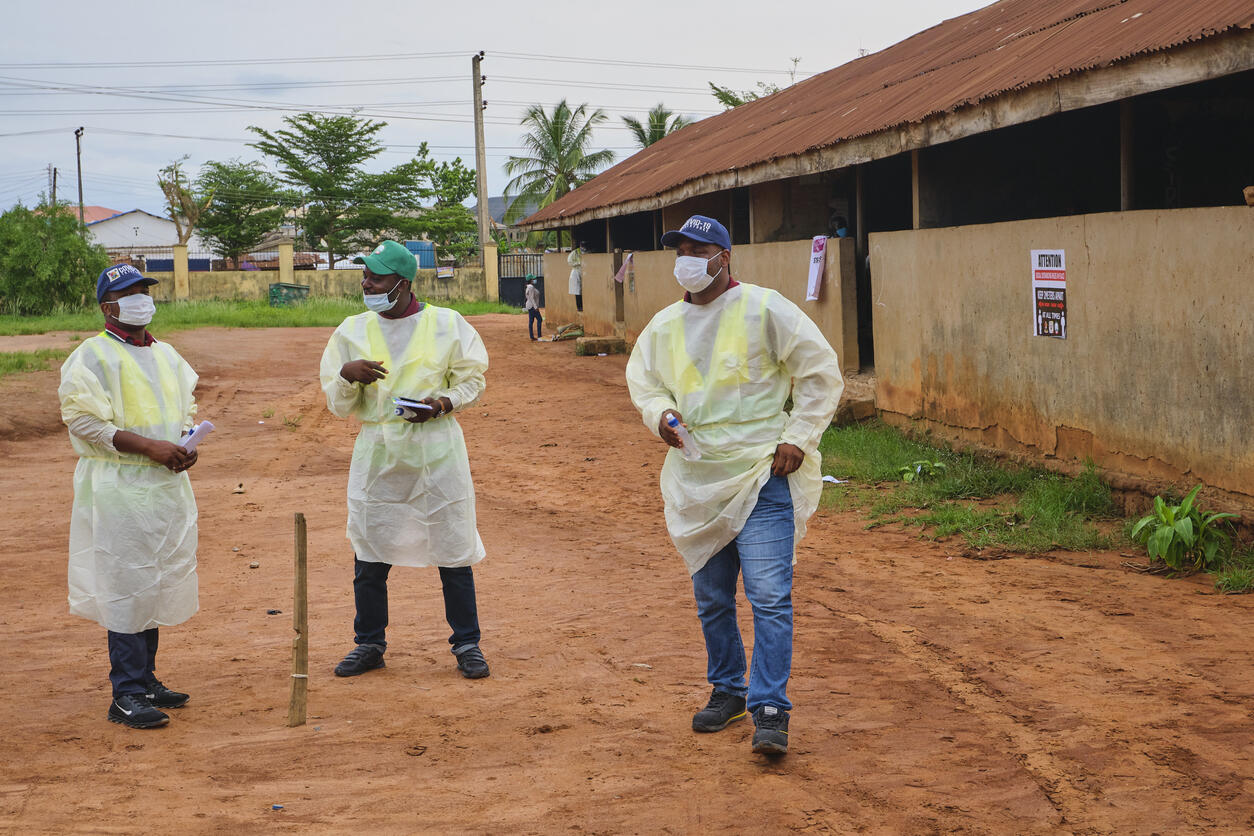
On March 21, 2020, Uganda reported its first Covid-19 case, this was the beginning of the first wave of the pandemic in the country. The government responded by instituting a lockdown and other severe restrictions, such as a ban on the movement of public and private vehicles except with expressly issued permits, and a halt to schooling. Uganda experienced some of the most restrictive responses to Covid-19 of any low-income country. The second wave started in the middle of May 2021, and on June 6 2021, the government instituted the second lockdown for 42 days with severe restrictions again. Interruption of supply chains, diversion of resources, and overwhelmed health systems have had severe collateral effects on existing public health programmes and health facilities have remained ill-equipped to deal with the influx of patients testing positive for Covid-19.
Whenever we engaged with health workers, the most common complaint was a lack of personal protective equipment (PPEs) as those provided by government were grossly insufficient for health workers and need was always higher than what was provided. With support from LSTMs ‘Bump it Forward’ Campaign, 42 health facilities spread across the four national regions were earmarked to benefit from the procured PPE in Uganda. The PPEs that we gave out included: 20 litres of sanitizer, 20 litres of liquid soap, 5 scrubbing brushes, 5 dryers, 5 pairs of heavy-duty gloves, 5 hand towels, 5 buckets, 30 boxes of 50 each face masks, 7 boxes of 100 each, non-sterile gloves, 5 litres of JIK bleach, and a pair of white Gumboots.
Christine Ikalamu, Richard the driver and I visited 9 facilities across 8 districts in eastern Uganda to distribute the PPE during the week of 5th July. We had obtained vehicle permit clearance from the Ministry of Works and Transport to traverse district borders.
Our first stop was Nankadulo HC IV, in the district of Kamuli, where they had a few PPE items left in store. They were worried about the high consumption rate, especially as they had no idea how long it would take to get the next delivery of government funded PPE. The situation was bleak, and they certainly were relieved to be getting supplies from an unexpected source.
At Namwendwa HC IV, also in Kamuli, we found that the in-charge had succumbed to covid-19 a week earlier and the facility was in a sombre mood. They were left with only a quarter of a litre of sanitizer, and they were planning amongst themselves to disband until PPE supplies were delivered by government. What we delivered was warmly welcomed.
At Bumanya HC IV clinic, in the district of Kaliro where we found their supplies running very low. The only oxygen cylinder was empty and they were still awaiting arrangements for transport to take it to Jinja for a refill. The delivery of PPE was a big relief and the staff thanked MRC and Liverpool for the much needed items.
Our next stop was Bugono HC IV, in Iganga District. We found the facility in-charge had that morning allocated the last box of face masks, with each facility’s essential staff receiving only three masks for the week. The delivery date of fresh supplies from the national medical stores was unknown. To show transparency, the facility in-charge had held a staff meeting in front of the facility stores to show the empty shelves, in response to the demands for PPEs by his staff, especially those testing patients for Covid who were feeling upset by the district’s political head demanding that health workers report to their duty stations, regardless of PPE supplies.
We then visited Kigandalo HC IV in Mayuge district, they still had some supplies of PPE since there were not so many Covid patients in the district but they were thankful for us topping up his supplies. Our next stop was Mulanda HC IV in Tororo district, they however, had run out of PPEs and were pondering their next move, so were very grateful for the supplies. In our last two stops were Bukedea and Namutumba districts, the general picture was the same as other health facilities with dwindled supplies of PPEs.
One major observation from the health workers was that we were different from the government PPE suppliers who only catered for clinicians and disregarded cleaners and the laboratory technicians. We had delivered PPE items which was to be used by all staff members, not just clinicians.
We returned safely back to Entebbe, without any incidence at the numerous inter-district police check points with the ‘password’ seeming to be the MRC/UVRI & LSHTM logo on the vehicle.